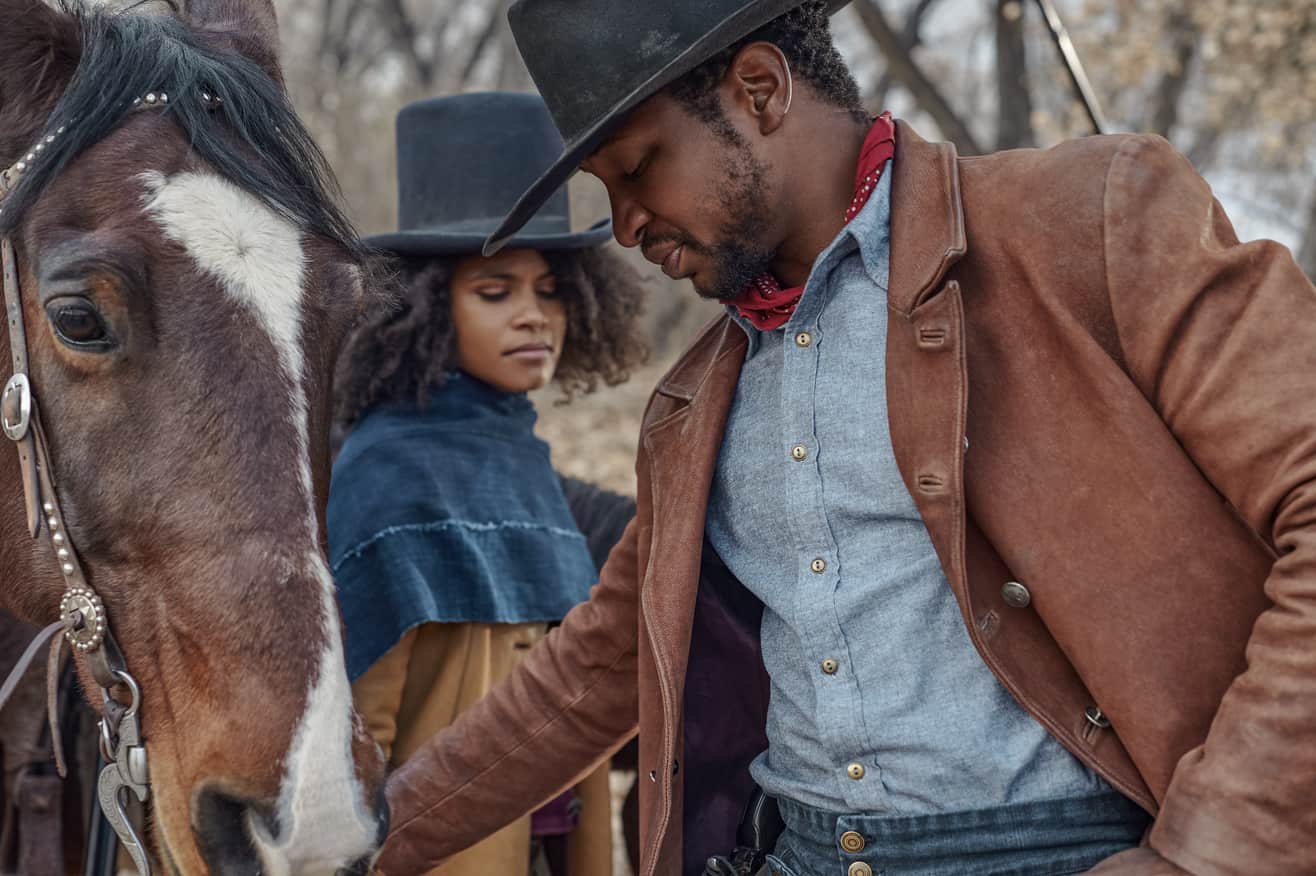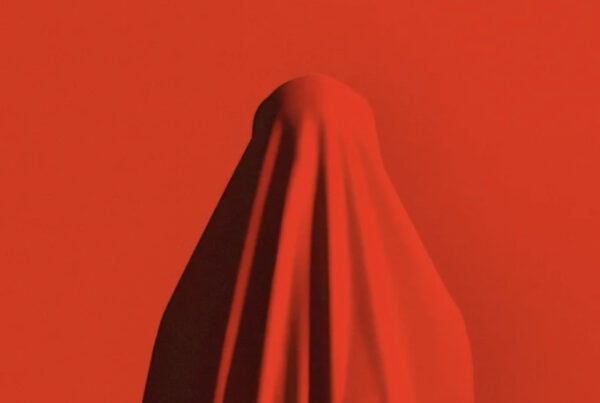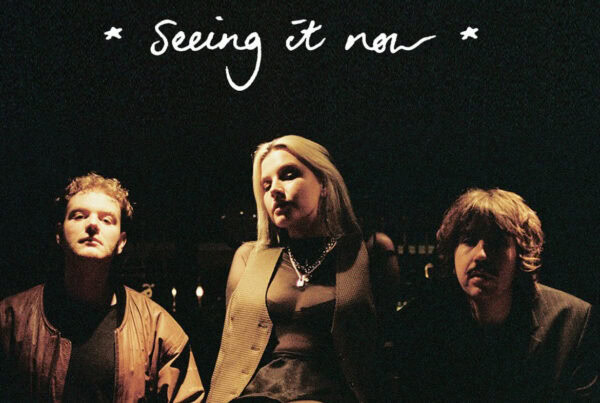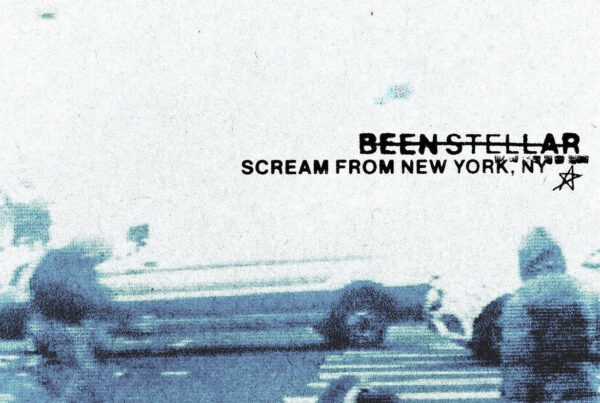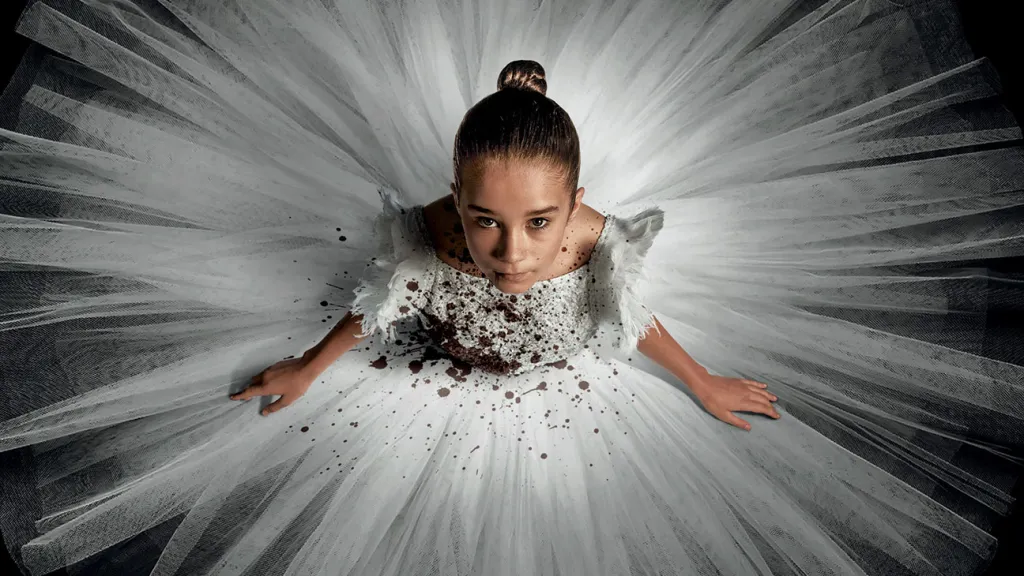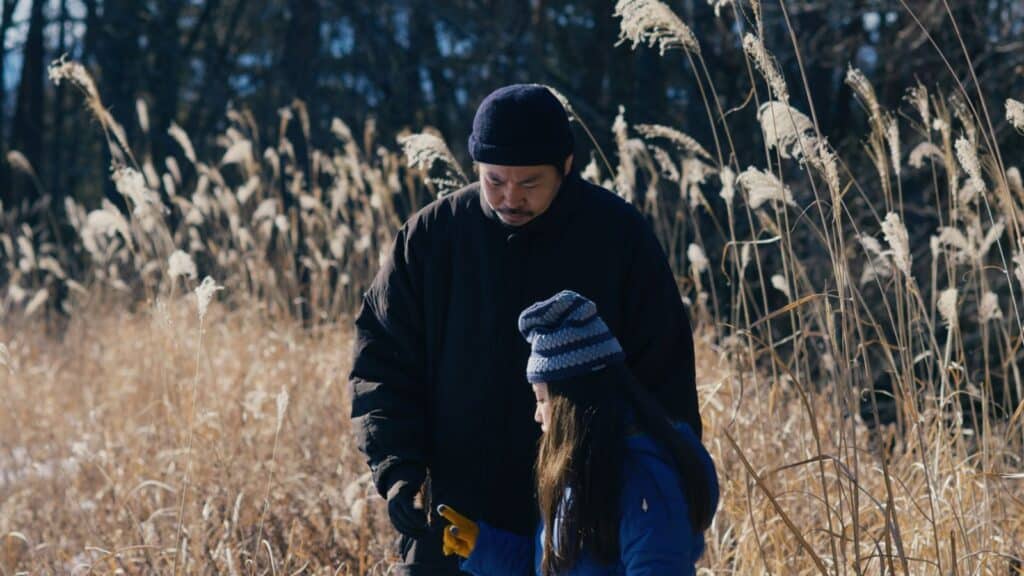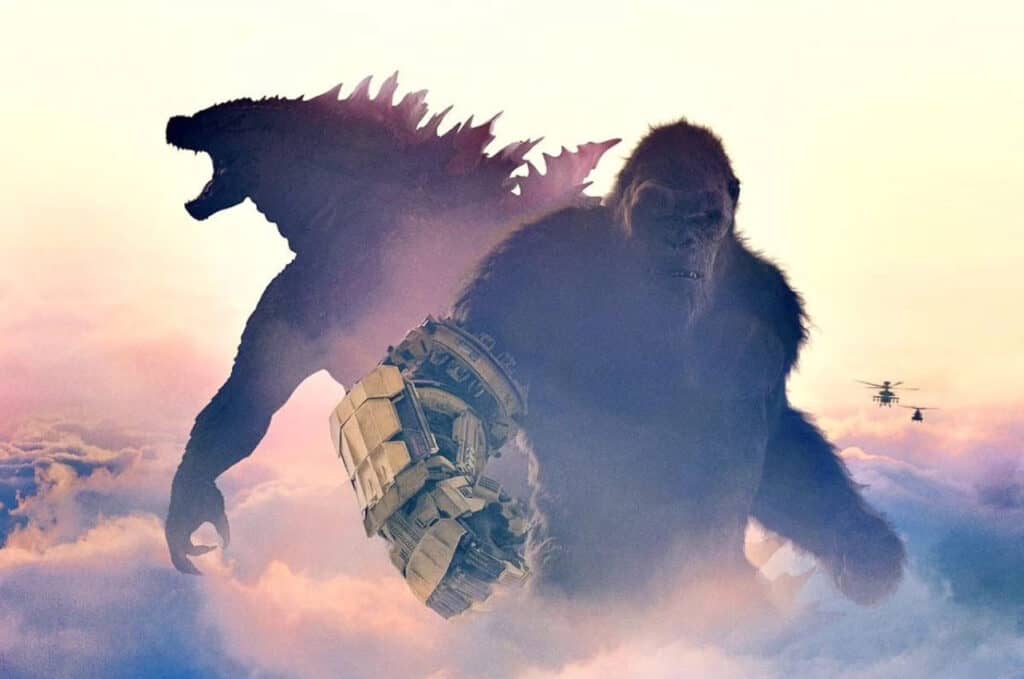Well, this is weird.
I’ve been mentally hung up on this phrase which entered my head after everything started opening back up again, allegedly for good, this past Summer to describe our current predicament. Where life stopped, or at least attempted to stop since capitalistic avarice and governmental contempt for anyone not earning high-six-figures per-year certainly didn’t for the 137,000 dead as of this writing, for 18 months thanks to a worldwide catastrophically-handled still-ongoing plague… only now for the general messaging to insist that COVID is over and we can all go back to “normal.” Cinemas, travel agents, music venues, government officials, even frickin’ chewing gum adverts all insisting that things are “normal” and it’s time to get back to it like everything’s fine… even though it is categorically not. To see people congregating in mass groups outside in gorgeous weather like the Before Times, like things really are alright and this was all just some horrible dream to the privileged like myself who didn’t lose or have any family members contract the virus… only to then feel compelled when walking through or past said crowd to fling a mask back on just in case, or take all of the free hand gel in all available buildings even though you literally just washed your hands five seconds ago, or to instantly feel a shiver whenever anybody coughs in a constrained space.
“Normal.” This is what “normal” feels like, we are told. But it’s not. Of course, it’s not. It’s a facsimile of normalcy – that phrase I alluded to up top and which I have been unable to shake these past five months. I have done multiple cinema day trips like I used to, I have met up with friends in both large groups and individual cases in both outdoor and indoor venues, I have gone to several of the live music concerts I missed so extremely dearly during the Stupid Apocalypse… But it’s not the same. It can’t be. This trauma is still happening. But that facsimile of normalcy is so alluring, so close that you can almost convince yourself it’s actually just like before until you look around and catch sight of incontrovertible evidence otherwise, that I get the inclination to chase it. I legitimately nearly cried at my first gig in 18 months, the act of being in a capacity arena singing along to every single line in every single Gorillaz song rushing back to me like a long-forgotten memory.
To that end, and to bring us on-topic… it’s weird to be back at the London Film Festival. Last year, for very obvious reasons, the country’s premiere film festival moved almost exclusively online – an experience I cannot talk about personally since I skipped out for the first time since 2016 for precisely that reason, but have heard from people on both organisation and patron sides of the equation was a total mess. But it’s 2021. We’re back to “normal.” Therefore the vast majority of the Festival is in-person once more, taking over pockets of central London as the world’s stars and haggard press descend for the madhouse. COVID, naturally, still hangs over everything with ever-present requests to mask up, sanitize, social distance, and all that very necessary jazz. Yet, overall, the vibe doesn’t seem too different to 2019, particularly during the Opening Gala press conference. You could almost convince yourself everything’s “normal” were it not for half the room masking up and worried darts in the direction of the slightest cough. The very first thing I did upon entering that room was scan for my friend Kelechi so I could give her and our fully-jabbed butts a giant hug.
The other way that things aren’t “normal,” at least for me, is that this year I have somehow, I legitimately do not know how so don’t ask, managed to get onto the BFI Critics Mentorship programme. What this means is that, for the first half of the Festival, myself and seven other writers – predominately from some kind of minority or disadvantaged background – are on a guided course designed to help us hone our voices, make contacts within the film publication industry, and get bylines in swanky real publications which pay money… not to say that Soundsphere isn’t the swankiest and realist publication by a country mile and let’s just end this sentence before Dom can finish Vince McMahon firing me. It is, in a phrase, kind of a big deal. It is also taking up an ungodly amount of my time. Hence why, instead of proper daily diary entries like I have done the four prior years I’ve attended, I’m instead doing more sporadic dispatches which’ll continue for a little while post-Fest whilst I catch up.
Another reason why these aren’t coming on the dot this year is because, clearly as penance for some ignoble sins we film critics must’ve committed in a past life, every first-round screening starts at 8am this year instead of 9am and takes place in the barely 100-seater per-screen VUE Leicester Square rather than, say, the 300+-seater Odeon right next door tailormade for big in-demand screenings. Like Spencer (not seen), The Souvenir: Part II (not seen), Red Rocket (got in barely), Last Night in Soho (TBD at press time), etc. 5am starts? To be alert and in hard critical analysis mode of often slow challenging films for eight hours a day? Then go back and write up several thousand words a night? Who hurt the programmers that they feel the need to do this to people?
Fortunately for us Critics Mentees, we didn’t have to kick off the Festival by dragging ourselves out of bed at 5am to make the Press & Industry screening of the big Opening Gala. No, we instead got to go to said Gala that evening having had no tea, the film starting an entire hour and ten minutes late, then be tasked with writing up a whole mess of coherent insightful words by 1am before waking up at 5am to try Spencer. (That last part of which received a polite “yeah, nope” from me.) It’s a hard knock life being a wannabe movie critic. Please cry tears for me, the person who shared the same air as Regina King and Jay-Z on Wednesday night. I’m truly suffering here.
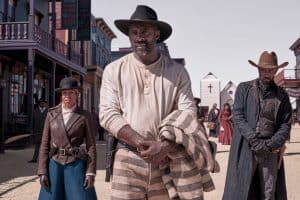
CR: DAVID LEE/NETFLIX © 2021
Anyways, The Harder They Fall (Grade: B-). Defiantly, the opening title cards of Jeyemes Samuel’s debut feature declare that “Although the events of this movie are fictional… These. People. Existed.” Coupled with a later announcement of the film’s title via percussive punctuation as a man gets filled with lead, it’s a statement of intent. A declaration to set the record straight about Black representation in a genre that decades of White male and, on extremely rare occasions, White female faces have been given free reign to canonise as spaces Whiter than a Conservative Party Conference. Whilst the motley cast of cowboys and outlaws who make up Samuel’s narrative likely never interacted with each other, especially not like this, their all-star line-up, combined with the murderer’s row of Black talent embodying the roles, makes for a damning indictment of historical whitewashing by the entertainment industry.
That said, The Harder They Fall is a revisionist Western most notable for how decidedly non-revisionist it is. Contrary to what one may think when presented with the logline “all-Black ensemble Western,” Samuel’s film is pointedly a rather straightforward genre piece. There’s a morally-upstanding outlaw, Nat Love – a magnetic and soulful Jonathan Majors – on a revenge quest. There’s a loyal posse consisting of fast-talking quick-drawer Bill Pickett (RJ Cyler), Bill’s level-headed life partner Jim Beckwurth (Edi Gathegi), Deputy U.S. Marshall Bass Reeves (Delroy Lindo), bouncer turned bodyguard Cuffee (Danielle Deadwyler), and Nat’s strongheaded old flame Stagecoach Mary (Zazsie Beetz). There’s the man who killed Nat’s parents when he was just 10; the notorious Rufus Buck (Idris Elba) and his right-hand guns, smooth-talking Cherokee Bill (LaKeith Stanfield) and uncompromising “Treacherous” Trudy Smith commandingly embodied by Regina King. And there’s a settlement said villainous cabal are holed up in, ostensibly to create a “paradise” but in reality being ruled with a tyrannical fist.
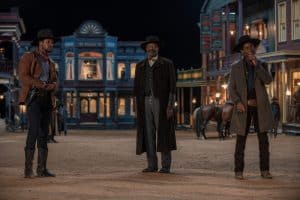
CR: DAVID LEE/NETFLIX © 2021
John Ford, Sergio Leone, John Sturgess, Gunsmoke. Samuel is clearly a loyal student of Westerns and his handling of the material slots right into that lineage. Gorgeously lensed desert-scape vistas, discombobulating rack-zooms, a deliberate artificiality of these towns encroaching in natural space. There may not be much dirt, but that too is reminiscent of the idealised cleaned-up takes on frontier life in 30s and 40s Westerns. Samuel also cribs a lot from earlier superhero movies like Raimi’s Spider-Man – and their antecedents, Blacksploitation – in the larger-than-life enormity with which he presents these characters. Several times, especially during the prologue where the man murders Nat’s parents, Samuel shoots Buck as this mythically silhouetted figure; an imposing icon of domineering fear and unquestioned cruel strength. There’s also an intentional choice to de-colourise traditional pain narratives of Black characters in stories of this era. When Nat gets his signature cross scar carved into his forehead, it calls to mind the moment a superhero’s origin story hits that iconic “a hero is born” beat more than Black people being marked by literal or figurative masters, ditto for sequences where our heroes receive cruel torture and vicious punishment which recall similar moments of defiant strife by captured comic book heroes.
That’s indicative of the movie’s celebration of Black life at large. Sure, violence can still be ugly, bloody and tragic, some deaths cutting deeper than others and the usual slightly ambiguous note of whether revenge is really worth it. But there’s a palpable joy in these characters just being allowed to tell a story like this in this period without having to fixate so heavily on the colour of their skin. Tellingly, called-attention-to Whiteness is played for a literal very funny gag and only the once. The refusal to make a radical message is the radical message. Samuel’s playfulness and genre-magpie approach to visualising a trope-heavy story like this is almost Tarantino-esque at points, whilst the musical rhythm with which his edits and integration of the (self-penned) score intertwine with action on-screen call back to his early career as musician The Bullitts.
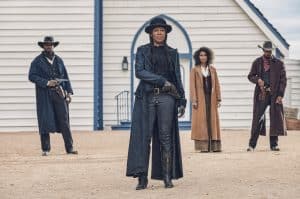
CR: DAVID LEE/NETFLIX © 2021
Unfortunately, when said action really lets loose in the final third, the wheels come off a tad. The action direction and staging being too rigid in movement, sloppy in execution, and abstract in design to fully convince. Some of the bigger emotional swings come too late to move like they should, perhaps a victim of pacing which revels in the world of these characters but to a degree which can make the middle stretch a touch aimless. Whilst one could also argue that it’s overstuffed for a 130-minute movie, the kind of debut that flings every last cool scene or character or beat into the broth out of fear that another opportunity like this won’t arise again. But The Harder They Fall’s sparkling joy at least is undeniable. A would-be blockbuster from the last two years which actively wants the viewer to have as fun of a time watching as everyone involved had making it. I prefer this significantly as an Opening Gala to some drearily self-serious Awards Bait historical message drama. On days like these, you just wanna see Regina King coolly growl out threats whilst intimidatingly and symbolically slicing the skin off of a piece of fruit.
Next time: two films attempt to earnestly tackle the damage toxic White male entitlement can cause, Sean Baker’s Red Rocket and the Woodstock ’99 documentary BURN IT DOWN!

